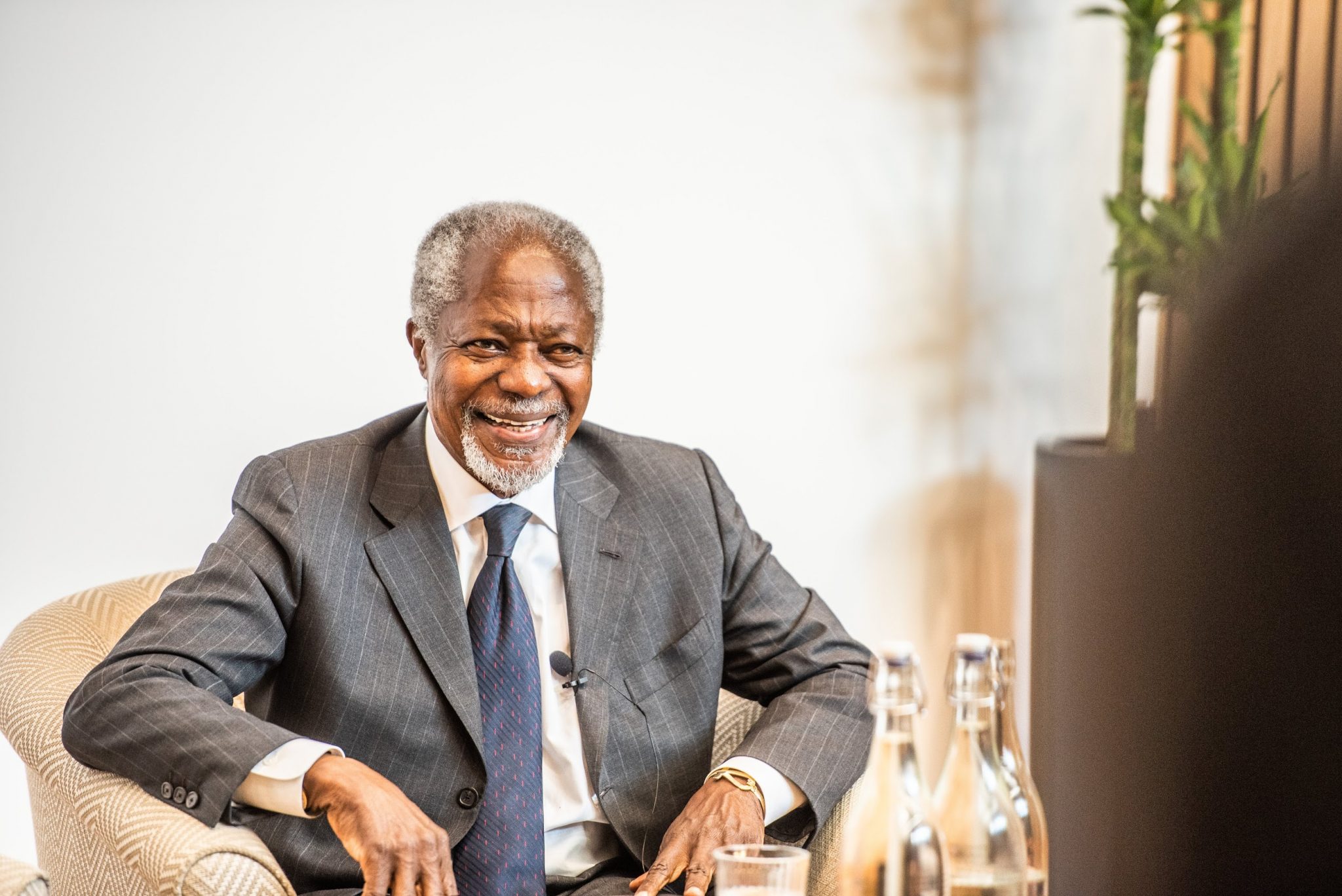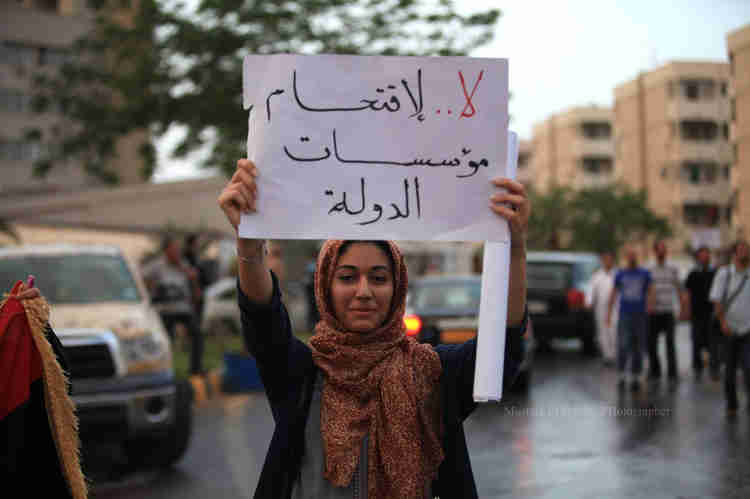Kofi Annan speaks to See Africa Differently
Kofi Annan: Nobel Peace Prize-winner; former UN Secretary-General and now See Africa Differently interviewee! He speaks to Gary Nunn about the fibre optic cables that will transform Africa, the agricultural revolution that has already transformed Africa – and how we can transform perceptions of the continent
Gary Nunn (GN): See Africa Differently is a campaign to showcase the under-reported progress from Africa. As Chair of the Africa Progress Panel, what do you predict will be the largest area of progress for Africa in the next decade?
Kofi Annan: In the past several years, there has been an enormous leap in information and communications technology (ICT) usage in Africa and I believe what we’ve seen so far is just the beginning.
Over the last decade, internet usage on the continent has increased by over two thousand percent. Africa has gone from having hardly any undersea fibre optic cables in 2000 to having nine that will connect almost all of Africa by 2012, reducing costs dramatically compared to satellite connectivity. At the same time, the continent has become the world’s second largest mobile market behind Asia – and the fastest growing. At present, more than one in three Africans owns a cellular phone.
These numbers are impressive and very promising. What I find even more impressive and promising, though, is how Africans around the continent are making use of these advancements – boosting the continent’s growth and facilitating a social transformation.
Small-scale agriculture and harvesting of natural resources provide livelihoods for over 70% of the African population. Having said this, most African farmers face numerous challenges on a daily basis, most of which have been aggravated by changes in the climate. Ever resourceful, Africans have embraced ICTs, as a means to access timely, appropriate and comprehensive agricultural information to support and improve their productivity.
We see similar progress in other sectors such as health care, where for example SMS codes are used to check for counterfeit drugs, and education, where just this week UNESCO unveiled an initiative to connect cellular phones to the classroom so as to provide additional support to teachers and students alike. In banking, M-PESA, originating from Kenya, is the first mobile money transfer service, anywhere in the world.
With greater access to the Internet, comes greater access to Facebook and Twitter. Never before has the world seen the extent to which these and other social networking sites can impact politics, as was seen this year in Africa. Africans throughout the continent have embraced social media as a way to voice their concerns, encourage and mobilise action, and bring about change. And in doing so, they have given a uniquely African meaning to the phrase ‘social media revolution’.
GN: One of the focuses of the Kofi Annan Foundation is sustainable development. What’s the greatest success story of sustainable development in Africa of the last decade?
Kofi Annan: There are many wonderful success stories to be found across the continent. The change that I am most pleased to see is the green shoots of a uniquely African Green Revolution taking root in many countries.
With the right investments throughout the agricultural value chain and an approach centered on empowering the small holder farmer – many of whom are women – I believe that Africa is now on the road to being able to feed itself.
The transformation of African agriculture into an engine of economic development has come about because of changes in government priorities and policies, development of the private sector, the creation of vibrant new partnerships, and an alignment of international aid with Africa’s priorities.
I have talked to smallholder farmers in Mali who tell me that high-yielding seeds and fertilizer are making a big difference to their livelihoods. Farmers are growing new varieties of sorghum, maize, and rice that are drought tolerant and disease resistant, and increasing their yields.
But more importantly I heard from them about their hopes for the future – that with more support they and their neighbors will do well year after year.
Similar aspirations are rising across the continent and African governments are stepping up to the challenge. In Ghana, agriculture has grown at an average of 5% a year for over 10 years. Malawi transformed itself into a net exporter of maize for four years running. Rwanda increased its food production by 15% in 2007 and 16% in 2008. In Tanzania, a government program supporting farmers through vouchers to purchase seeds and fertilizers enabled 700,000 smallholder farmers to produce five million tons of maize. And Mali now dedicates 14% of its national budget to agriculture in a concerted effort to change the future for its farmers.
Across sub-Saharan Africa, 19 countries have put in place plans to accelerate their annual agricultural growth of 6% a year.
I hope that these developments will help to banish the image of Africa as a continent of disease, hunger and despair.
GN: Recent ComRes polling we commissioned of 2,000 UK adults found that 1 in 5 misidentify Africa as a country and 62% associate Africa with corruption – but only 3% say Africa is ‘good for business.’ How should we clear up these misconceptions and portray a more diverse and positive depiction of African countries?
Kofi Annan: Africa is a diverse continent of 54 countries with hundreds of languages and cultures, and endowed with plenty of natural resources. Despite this rich diversity, Africa and its people are often reduced to a single sound-bite or image of helplessness. This stems from ignorance or bias.
Fortunately, this perception is being challenged. Increasingly, Africans are telling their own story – their voices amplified by new technologies and media. Civil society is growing and demanding more democratic and accountable governance. African entrepreneurs are creating new jobs and business on the continent and abroad. Sub-regional economic integration is increasing growth and opportunity.
Over the past decade six of the world’s ten fastest-growing countries were African. In eight of the past ten years, Africa has grown faster than East Asia, including Japan. Even allowing for the knock-on effect of the northern hemisphere’s slowdown, the IMF expects Africa to grow by 6% this year and nearly 6% in 2012, about the same as Asia.
The story of Africa today is that of a continent where there are incredible opportunities for growth and investment, where a young and dynamic population is making contributions in the area of business innovation, music, art, sport and social and environmental change. The road will be long and the challenges numerous but Africa has a story that no one can afford to ignore!
GN: What 3 words sum up a modern, progressive Africa to you?
Kofi Annan: Changing. Dynamic. Opportunity.
The Kofi Annan Foundation works to promote better global governance and strengthen the capacities of people and countries to achieve a fairer, more secure world.



